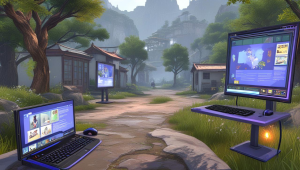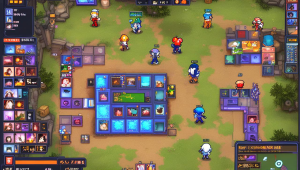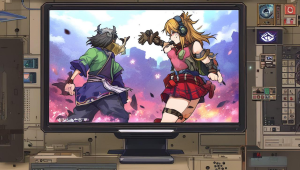In the world of Overwatch, the role of the support class is of utmost significance. These heroes are the unsung heroes who keep their teammates in the fight, healing wounds and providing crucial assistance.
Support heroes in Overwatch come in various forms, each with their unique abilities and playstyles. Mercy, for example, is one of the most iconic support characters. With her ability to fly and her powerful healing beam, she can quickly reach injured teammates and restore their health. Her resurrection ability is also a game-changer, bringing back fallen allies and giving the team a second chance.
Another notable support hero is Lucio. He has the power to switch between two types of music, each with its own benefits. His speed boost music allows him to quickly move around the battlefield, reaching teammates in need in no time. His healing music, on the other hand, provides a continuous stream of health to nearby allies. Lucio's ability to affect the tempo of the battle with his music makes him a versatile and valuable asset to any team.

Brigitte is a support hero who brings a unique blend of offense and defense to the table. She has a shield that can protect her and her teammates from incoming fire, and her melee attacks can deal significant damage to enemies. Her ability to repair allies' shields and heal them makes her an excellent choice for keeping the team alive in intense battles.
Ana is a sniper support hero who can deal damage from a distance while also providing healing and debuffs. Her sleep dart can incapacitate enemies, giving the team a temporary advantage, and her biotic rifle can heal allies or damage enemies depending on the situation. Ana's long-range capabilities make her a valuable asset in maps with open spaces.
The role of the support class in Overwatch is not just about healing and resurrecting teammates. Support heroes also play a crucial role in controlling the battlefield. They can use their abilities to disrupt enemy attacks, protect their allies, and create opportunities for their team to strike.
For example, Zenyatta's orb of discord can reduce the damage output of an enemy, making them easier to kill. His orb of harmony, on the other hand, can increase the damage output of an ally, giving them an edge in combat. Zenyatta's ability to manipulate the battlefield with his orbs makes him a powerful support hero.
Moira is another support hero who can control the battlefield in her own way. Her biotic orb can heal allies or damage enemies, and her fade ability allows her to quickly escape danger or get to teammates in need. Moira's ability to adapt to different situations and provide both healing and damage makes her a versatile and dangerous opponent.
In team battles, the support class works closely with the other heroes to achieve victory. They need to communicate effectively with their teammates, keep an eye on their health and positions, and use their abilities at the right time. A skilled support player can turn the tide of a battle, keeping their team alive and giving them the opportunity to win.
The support class in Overwatch is also about teamwork and cooperation. Each support hero has their own strengths and weaknesses, and they need to work together with the other heroes on the team to cover each other's weaknesses and maximize their strengths. For example, Mercy can focus on healing the frontline heroes, while Lucio can provide speed boosts and area-of-effect healing to the entire team.
In conclusion, the support class in Overwatch is a vital part of the game. These heroes are the backbone of the team, keeping their allies alive and providing crucial assistance in the heat of battle. Whether it's healing wounds, resurrecting fallen teammates, or controlling the battlefield, the support heroes play a crucial role in determining the outcome of a game. So, the next time you play Overwatch, don't forget to give your support heroes some love and appreciation. They are the ones who make the team work!






